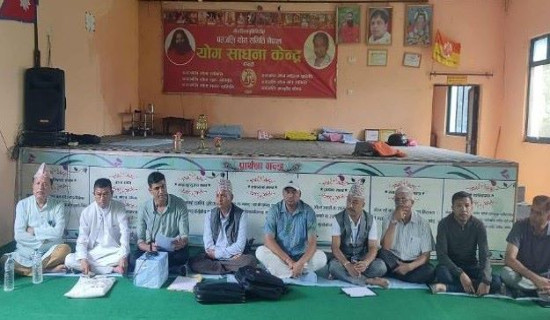- Sunday, 31 August 2025
Europe On Churchill's Footstep
It is said that Winston Churchill had proposed a surprise allied attack on the Soviet Union weeks after the Nazi surrender in 1945 but his Military Adviser Field Marshal Alan Brooke rejected his idea saying that in a situation when the Soviet Union outnumbered allied troops by three to one and held better position in the ground war, such an attack would be a disaster. If the Allied powers attacked the Soviet Union, it would turn into a massive, unwinnable war. The project, which is also referred to as' Operation Unthinkable', was later abandoned. Eighty years on, Keir Starmer is at the helm in Britain and he appears eager to follow Churchill's footsteps regarding Europe's defense policy regarding Russia.
The saber rattling between Russia and NATO alliance and the test of lethal arms that is already taking place through proxies in Russia-Ukraine war and the multiple conflict spots in West Asia, indicate that the allied powers are eager to pursue the stalled agenda of war with Russia though the existing power equation between Russia and Europe is almost the same and do not provide a clear way to victory for the NATO alliance if a full-fledged war breaks out between European powers and Russia.
Polarisation
Just like in the pre-Second World War years, the world is polarising between mainly two blocks, the US-led trans-Atlantic alliance and the USSR-led Asia-Pacific bloc. But the factors triggering the polarisation in the pre-Second World War and now are different. Back then, the ideological differences, territorial ambition, desire for protecting colonial order and racial superiority were the core values behind the polarisation while the present day polarisation is triggered by emergence of multi-polarity, shifting economic power centre, collapse of rules-based order and the assertive ness of the global south to redefine the global balance of power.
The Russia-Ukraine war and Israel-Iran war are the most conspicuous hotspots of conflict, which carry the potential for igniting a global conflict in the 21st century. In both wars, most of the European countries and the United States have been supplying lethal weapons, technical expertise and intelligence to their proxies. Recently, Israel and Iran had a brutal confrontation as proxies of distant powers. Luckily, they were able to come back from the brink of a total war due to the timely intervention of the international mediators. Now, a fragile peace is in place there, though the root causes of conflict are still intact. The world thinks it is perfectly fine for Israel to own nuclear weapons without signing the NPT and without IAEA supervision, while it is inexcusable for Iran to obtain nuclear capacity under UN supervision under the valid NPT.
Similarly, the interference of Western powers in the Russia-Ukraine war has contributed to prolonging the war, leading to death and displacement of millions of people and the destruction of historical cities and cultural heritages. The USA, Germany, France and Britain are deeply involved in the proxy war by supplying lethal arms and munitions ranging from artillery shells, tanks, armoured vehicles, ballistic missiles and fighter jets. On 1 June, Ukraine launched what it calls Operation Spider Web, targeting six major air bases deep inside Russian territory using drones secretly transported on trucks. According to American sources, 10 aircrafts were destroyed and 20 others damaged in that attack. Russia has accused that Britain and the USA had providing intelligence and coordinates to identify the targets.
In its retaliatory attack, Russia has been unleashing hell for weeks on major cities of Ukraine like the capital Kiev, Kharkiv, Odessa, Sumy, Zaporizhzhia and on several other frontline military and civilian targets. Adding fuel to the already raging fire, German Chancellor Friedrich Merz has recently said that Germany was ready to provide some of its Taurus hypersonic missiles with a range of 500 kilometers to Ukraine," as part of a coordinated European package" enabling it to strike strategic targets deep inside Russia. As both Russia and the NATO countries move closer to the line of conflict, Russia has warned Germany that if Taurus missiles are used by Ukraine against Russian targets, it could strike European cities with overwhelming superior weapons.
Russia is a country with the largest arsenal of nuclear weapons in the world. It has used the most advanced and powerful ballistic and hypersonic missile systems, like Kinzhal, Zircon and Avangard, which can evade the enemy's radar and air defense systems. Recently, it has added yet another missile system called Oreshnik, which is said to be non-radioactive but as destructive as a nuclear missile. The European powers know that Russia is more powerful militarily than the combined strength of Europe. Yet, they are pursuing a confrontational course of action. On 23 November, German Defense Minister Boris Pistorius said that 'Russia produces in three months the weapons and ammunition that the European Union produces in a year'.
Grim realisation
This is a grim realisation but, strangely, the war rhetoric has not been toned down. Like the Germans, the British, too, are obstreperously hostile to Russia. Recently, Prime Minister Keir Starmer said that ' the most effective way of deterring them (Russia and China) is to be ready. We are going to build at least six munitions factories in the United Kingdom. We will build thousands of long-range weapons to build European defense.
European powers appear deeply unsettled by the rise of Russia, but it seems that the phase of using war as deterrence has passed. Russia has already crossed the Rubicon and the only way to tame it is to respect its geopolitical interests. Its geopolitical interest will be respected if NATO backtracks from its plan to expand its membership in Eastern Europe as agreed upon between Mikhail Gorbachev and American Secretary of State James Baker in 1991, which reads, "There would be no extension of NATO jurisdiction one inch to the east of Germany". The sooner it is done, the faster Europe can move away from an inevitable Armageddon.
(Dr. Bharadwaj is a former ambassador and former chairperson of Gorkhapatra Corporation.bharadwajnarad@gmail.com.)
















